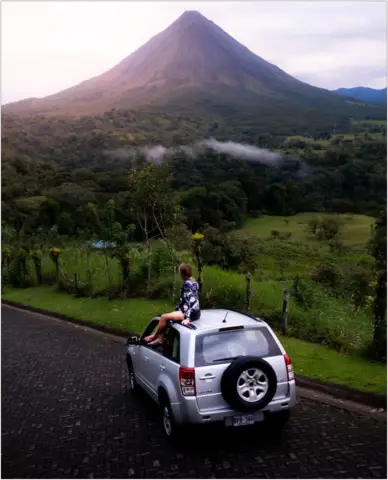So, you’re thinking about driving in Costa Rica? Whether you’re renting a car or bringing your own, there are a few things you should know before hitting the road. Here’s everything you need to know about driving in Costa Rica!
Accidents
If you are involved in a car accident while driving in Costa Rica, it is important to take some crucial steps to ensure everyone’s safety and well-being.
First, call 911 to report the accident. Do not move your car from the position it is in so that the authorities can investigate the situation.
Once the authorities arrive, they will assess the situation and determine what needs to be done. If you have insurance, be sure to inform your insurance company of the accident as soon as possible. Be prepared, being involved in an accident can cause your monthly car payments to increase.
The police will likely need some documentation in order to process your claim.
Be sure to get the other driver’s insurance information, as well as their contact information.
It is important to note that in Costa Rica, it is illegal to drive without insurance. If you are caught driving without insurance, you could face some hefty penalties.
Where are the signs?
Throughout the country, signs are generally lacking, which can make navigation difficult. In addition, most roads do not have street signs at all, so it’s important to know your route before setting out.
Nevertheless, driving can be a great way to see the country and explore its many hidden gems. Just remember to exercise caution and drive defensively. With a little preparation, you can have a safe and enjoyable experience driving in Costa Rica.
Road conditions
Costa Rica is a land of contrasts, and this is also true of its roads. On the one hand, you have well-paved two-lane highways that connect major cities and towns. On the other hand, you have pothole-ridden dirt roads that meander through remote rural areas. In some cases, these roads are only accessible with a four-wheel drive vehicle.
And then there are the river crossings. During the rainy season, these can be particularly treacherous, as the rivers swell and the currents become more powerful. For visitors to Costa Rica, it is important to know that the condition of the roads can vary greatly from region to region.
Before embarking on any journey, it is advisable to check with local authorities or your tour operator to get the most up-to-date information.
Watch for washouts in the rainy season
During the rainy season, washouts and landslides are common. These can lead to serious accidents, so it is important to be aware of the risks and take precautions. If possible, avoid driving during heavy rains.
If you must drive, be sure to stay on paved roads and watch for signs of washouts or landslides. By taking these precautions, you can help ensure a safe and enjoyable trip to Costa Rica.
Watch out for pedestrians
When driving in Costa Rica, it’s important to be aware of pedestrians. Unlike in many other countries, pedestrians here do not have the right of way and may not be wearing reflective material at night. If you stop to let a pedestrian cross the road, you may get rear-ended by another driver.
For these reasons, it’s best to avoid stopping for pedestrians if possible. Instead, use your horn to warn them of your presence and drive slowly until they are out of the way. By taking these precautions, you can help ensure everyone’s safety on the roads.
Night driving
Costa Rica is a beautiful country, but it can be dangerous to drive at night if you’re not used to the local conditions. There are fewer street lights than in other countries, and the roads can be in poor condition. This can make it difficult to see obstacles in the road or to react quickly to changing conditions.
If you’re not used to driving in Costa Rica, it’s best to avoid driving at night. If you must drive, be sure to take extra caution and drive slowly. Pay attention to the road and be prepared for anything.
Gas stations
In Costa Rica, all gas stations are full-serve. This means that attendants will pump your gas for you and generally wash your windshield as well.
You can pay with cash or a card at all stations, although it’s common to tip the attendant with cash if they provide good service. All stations have the same government-regulated gas prices, so there’s no need to shop around.
However, you should watch the attendant make sure they zero out the meter before pumping your gas. Otherwise, you might be charged for more than you’ve actually used. With these few tips in mind, refueling in Costa Rica should be a breeze!
How to protect your valuables
When renting a car in Costa Rica, it is important to be aware of the risk of theft. Rental cars are often targeted by thieves because they are easy to identify. The best way to protect your valuables is to keep them out of sight. If possible, store them in the trunk of the car.
If you must leave them in the passenger compartment, hide them beneath a seat or blanket. It is also important to keep your doors and windows locked at all times, even when you are driving.

General requirements
If you’re planning on driving in Costa Rica, there are a few things you should know.
- You do not need an international driver’s license to drive in Costa Rica – a valid driver’s license from your home country will suffice.
- Costa Rica follows the standard rule of driving on the right side of the road.
- Speed limits are posted in kilometers rather than miles, so be sure to adjust your speed accordingly.
Now that you know the basic tips for driving in Costa Rica, you’re ready to hit the road!

